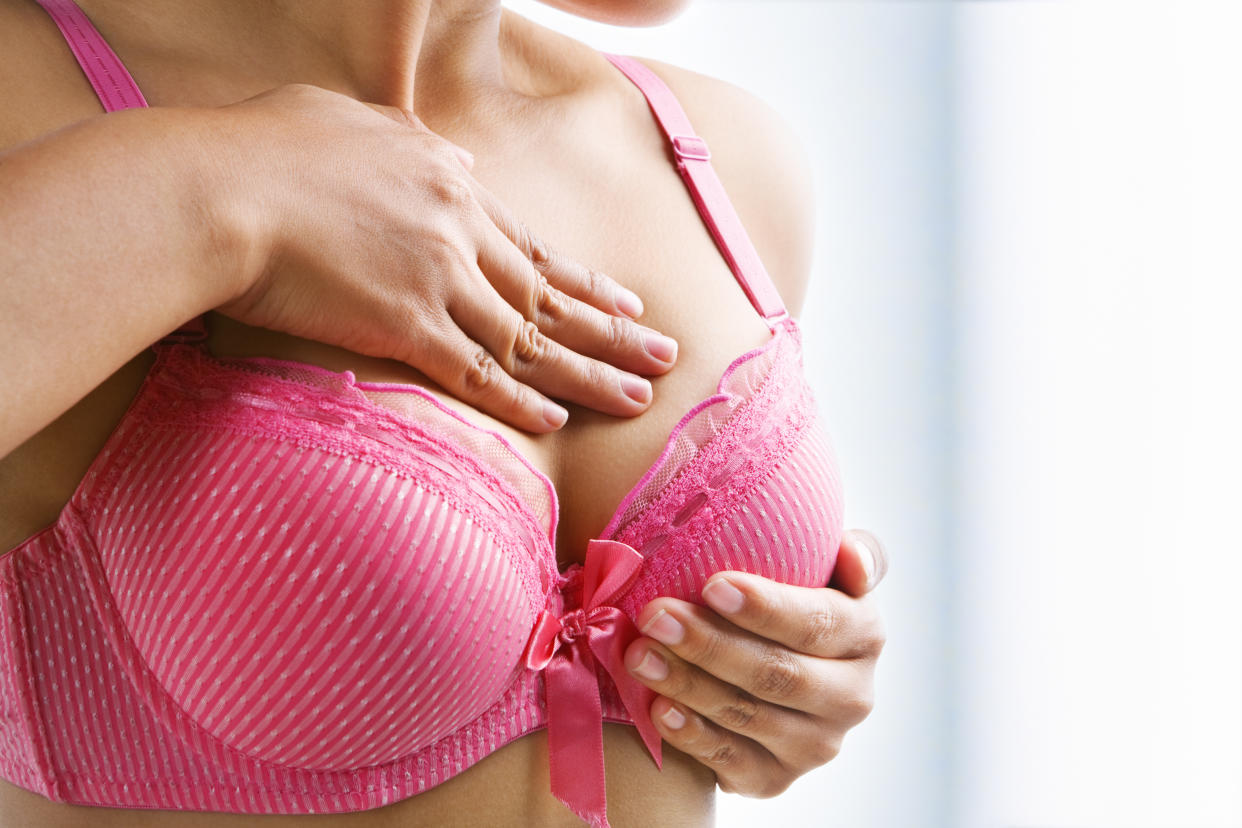A model went topless for a televised breast cancer screening

If you’ve ever been intimidated by breast self-exams, a live tutorial on a morning talk show just clarified the procedure in a revealing demo.
On Friday, morning news show Lorraine, which airs weekdays on iTV in the United Kingdom, posted a Facebook video of a live breast exam conducted on a topless model. “The key thing is to examine your own breasts, to know if there’s any change in what’s normal for you,” said Dr. Hilary, a male physician, standing beside a female volunteer named Hannah, who was wearing a bathrobe.
Hannah then drops her robe and stands topless while the doctor takes viewers through a standard breast self-exam.
The video has been viewed 14,000 times on Facebook, and women have praised the show for the visual guidance: “That’s the first time I’ve done it properly, thank you”; “Well done, this was very informative. Thank you”; and “Very useful, thank you. I’ve been checking mine the wrong way. Glad I [saw] this.”
While the idea of live, televised breast exams aren’t really new, the concept is still controversial. In 2015, when a doctor demonstrated how to perform a self-breast exam on a female volunteer on iTV’s This Morning, viewers condemned the candid segment, particularly for featuring a male physician. (In previous years, This Morning aired live testicle and rectal examinations for cancer awareness.)
An Australian talk show called Mamamia also did a live demo on a topless woman in 2015. “Due to the nature of this topic we warn viewers that there will be some nudity, but we’re all adults. We think it’s really important to show exactly what’s going on rather than just talking about it,” host Sarah Harris told viewers.
And on Thursday, a doctor demonstrated a breast exam on a model wearing a sports bra, on Megyn Kelly Today.
There’s lots of confusion surrounding breast self-exams, a concept that originated in the 1930s, with the aim of educating early detection for breast cancer, the leading cause of cancer death among women (aside from lung cancer).
According to U.S. News and World Report, until the 1970s, self-screening was promoted by most doctors and breast cancer prevention organizations, until research suggested they were ineffective and actually increased the number of unnecessary biopsies and false-positive tests. For example, two large studies conducted in Russia and China showed similar death rates for breast cancer between women who did and those who didn’t perform regular self-exams.
“It’s important to separate out the public health implications from the implications for an individual woman,” epidemiologist David B. Thomas, MD, who authored the Chinese study, told NBC News in 2008. “If a woman is highly motivated — let’s say her mother or sister has been diagnosed with breast cancer — then of course she should practice breast self-exam. But that’s a different situation than trying to reach women on a mass scale. Our study shows that that’s probably a waste of time. You’re not going to get women sufficiently motivated to practice it well enough and frequently enough to make that big of a difference.”
Still, many doctors suggest that women, who are familiar their own bodies and their associated changes, conduct self-exams as a preventive measure and for lack of better options.
Televised breast cancer screenings are a matter of opinion, but for the 60 percent of women who hesitate to seek medical advice about their breasts in part due to embarrassment, a little nudity in the name of public health is probably worth it.
Read more from Yahoo Lifestyle:
Girls are playing football — and being crowned homecoming queen
Family kicked off Southwest flight for ‘rowdy’ children: ‘We don’t even know what we did wrong’
Plus-size woman says body-positive photo shoot got her fired
Follow us on Instagram, Facebook, and Twitter for nonstop inspiration delivered fresh to your feed, every day.
